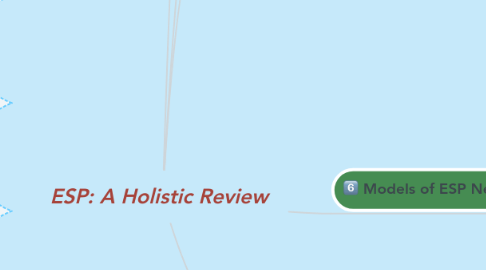
1. History and Development of English for Specific Purposes (ESP)
1.1. The emergence of ESP has resulted from many occurrences like the second world war in 1945, the rapid expansion in scientific, the growth of science and technology, the increased use of English as the international language of science, technology and business.
2. Notion of Needs Analysis in ESP Setting
2.1. What learners will be required to do with the foreign language in the target situation and how learners might best master the language during the period learning.
3. Components of ESP Needs Analysis
3.1. S
3.1.1. Target Situation Analysis (TSA)
3.1.1.1. It refers to form of needs analysis, which centers on identifying the learners’ language requirements in the occupational or academic setting.
3.1.2. Learning Situation Analysis (LSA)
3.1.2.1. It refers to subjective, felt and process-oriented needs . LSA also directs what learners want to learn.
3.1.3. Present Situation Analysis (PSA)
3.1.3.1. It seeks to ascertain what the students are akin to at the start of their language course, looking into their strengths and weaknesses.
3.1.4. Means Analysis
3.1.4.1. Means analysis can be considered as an adjunct to needs analysis to establish a workable course design.
3.1.5. Language Audits
3.1.5.1. The author Jordan suggests that language audits are executed for companies, regions or countries.
